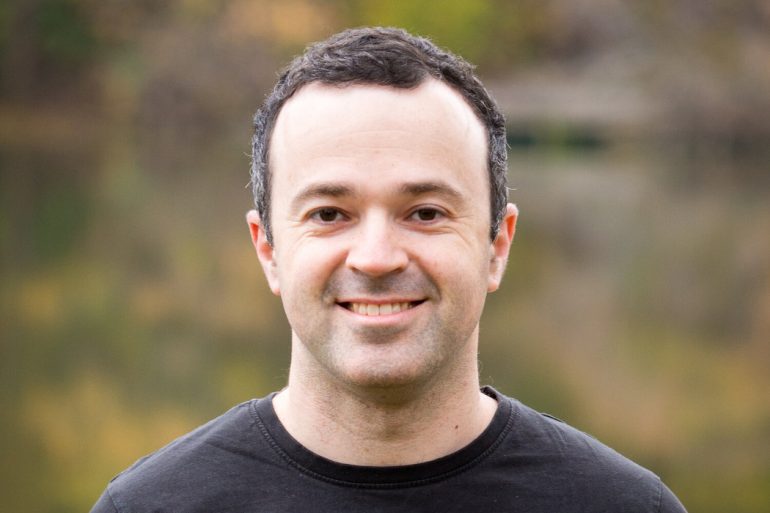Toronto-based software startup Shakudo has rebranded from DevSentient and raised $4.2 million CAD ($3.4 million USD) in seed funding to expand the reach of its artificial intelligence (AI) platform for data science and machine learning (ML) teams.
Shakudo offers an end-to-end platform designed to help these teams turn their AI solutions into products more quickly. It does so by reducing their need for engineers, which are especially hard to come by these days.
The startup, which was founded by a group of AI experts with experience building and working on AI teams at Georgian Partners, Borealis AI, and Bank of Montreal (BMO), has seen some strong early traction since rolling out its offering in January.
“Today it’s AI, down the road it might be blockchain or quantum. We want these areas of emerging tech to be adopted by the industry much faster.”
-Yevgeniy Vahlis, Shakudo
In an interview with BetaKit, Shakudo co-founder and CEO Yevgeniy Vahlis said, long-term, Shakudo wants to become “the platform for emerging tech teams.”
“Today it’s AI, down the road it might be blockchain or quantum,” said Vahlis. “We want these areas of emerging tech to be adopted by the industry much faster. And the only way we think you can do that effectively is if we empower these small but mighty teams to move fast on their own.”
Shakudo’s platform allows data science and ML teams to produce results in the form of products rather than experiments, while making them less reliant on engineers to take their research to market. The startup’s Hyperplane software allows researchers to design, develop, test, and deploy their AI products. Shakudo’s platform automates many common engineering and development tasks, and comes with built-in tools that simplify the process of scaling AI solutions.
The startup’s all-equity seed round, which closed in August, was led by Toronto-based Golden Ventures and California’s Parade Ventures, with participation from Kitchener-Waterloo’s Garage Capital, Global Founders Capital, Draft, and Basecamp Fund. The round was also supported by angel investors Spin Master co-founder Anton Rabie, Wattpad co-founder Ivan Yuen, Nymi COO Dave Rai, and Chanda Carr, co-managing partner of The Group Ventures.
“It’s obvious that data and machine learning and artificial intelligence are becoming sort of table stakes for a lot of different companies,” Jamie Rosenblatt, partner at Golden Ventures, told BetaKit. “We’ve seen massive investments across the board from that perspective, but it’s not super easy to implement.”
RELATED: Golden Ventures looks to capitalize on portfolio winners with two new funds
For Vahlis, this is the fourth time he has set up an AI shop, as he previously built AI teams at Georgian, Royal Bank of Canada (RBC)-backed AI research centre Borealis AI, and BMO. “I’ve done this several times, [and] I’ve seen a lot of the AI space as a buyer,” he said. “Now I’m trying to apply some of the lessons learned back and help things move faster.”
Shakudo was co-founded by Vahlis, Stella Wu (head of ML), and Christine Yuen (head of platform). Wu most recently worked as an ML researcher at BMO and Borealis AI, after she co-founded mAlgic and served as a data scientist with Firmex. Prior to joining Shakudo, Yuen held AI research positions at BMO and Deloitte.
Vahlis said Shakudo initially began as a side project a couple of years ago that he would work on during nights and weekends. At the time, Vahlis was serving as head of BMO AI Labs, which he founded in January 2019. He left BMO in July to focus on Shakudo.
The startup, which launched its product in January 2021, has been growing steadily since then. To date, the company has run a number of pilot programs, generating a perfect conversion rate, as all of the participants have become paying customers. “There’s a gap in the industry,” said Vahlis. “As soon as we had a product, there was a lot of interest.”

“Pretty much every business out there knows that they need to hire data scientists, and so they invest a certain amount of capital, they’ll invest, let’s say, $10 million in data science, expecting $10 million worth of output, but they actually get a $10 million worth of ideas and proofs of concept and demos,” said the CEO, who added that additional funding and engineering resources are typically required in order to take these ideas to market.
According to Vahlis, this cost, coupled with the particularly high demand for engineering talent right, especially that which is skilled in AI and ML, pose a significant challenge.
“All the existing solutions still require you to provide significant engineering resources to operate them to get the data scientist to the end of job,” said Vahlis. “And so you may be buying a product that claims they’ll offer to operationalize your data science team, but you still need to invest additional capital.”
Enter Shakudo, which aims to empower data scientists and ML teams to turn their ideas into products.
RELATED: BMO and Riskfuel collaborate on AI for financial transactions
Rosenblatt, who has known Vahlis for about two years, said he wanted to find a way to work with him. The Golden Ventures partner said the firm has seen, firsthand, the engineering challenges faced by other companies it has backed. To address these issues, some Golden Ventures portfolio companies are already using Shakudo.
“Machine learning and data infrastructure is a really interesting and fast-growing space,” said Rosenblatt. “[Shakudo has] a world-class team with a solution that we think will cut through the noise of that space and will also help solve for the engineering constraints that a lot of companies are facing right now.”
This is the company’s second round of funding to date, as it raised a previously undisclosed $500,000 angel round in May, which was supported by angel investors from NVIDIA, Capgemini, Quantum Metric, and more.
Shakudo’s original target for its seed round was $3.1 million CAD, and Vahlis claimed the startup was offered up to $8.7 million, but wasn’t prepared to take that much capital from a dilution perspective; so the software startup settled on $4.2 million. Shakudo plans to invest the fresh capital primarily in sales and marketing, but also intends to boost its engineering and product functions.
Prior to its seed round, Shakudo had four employees. Over the last month, the startup has hired five additional people, and plans to leverage its fresh capital to grow to 12 or 13.
Feature image of Yevgeniy Vahlis, courtesy of Shakudo


